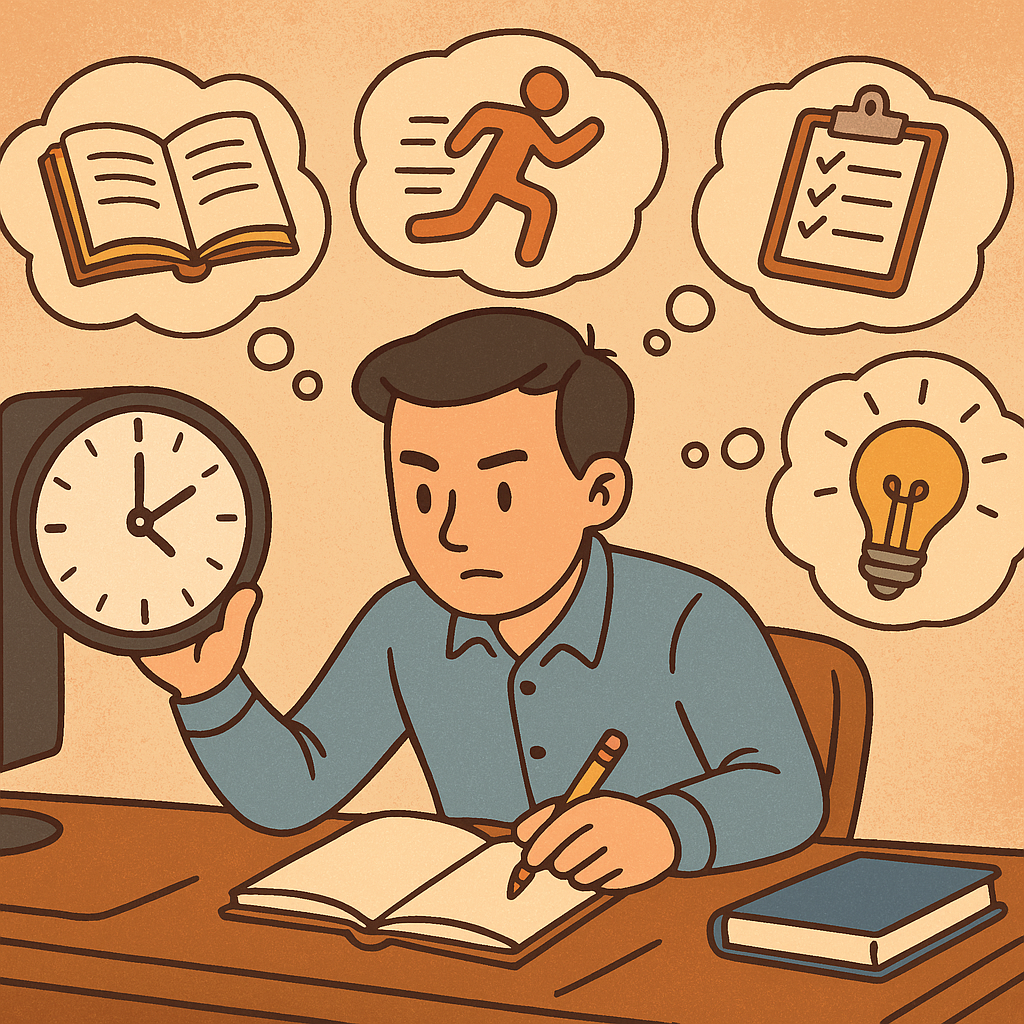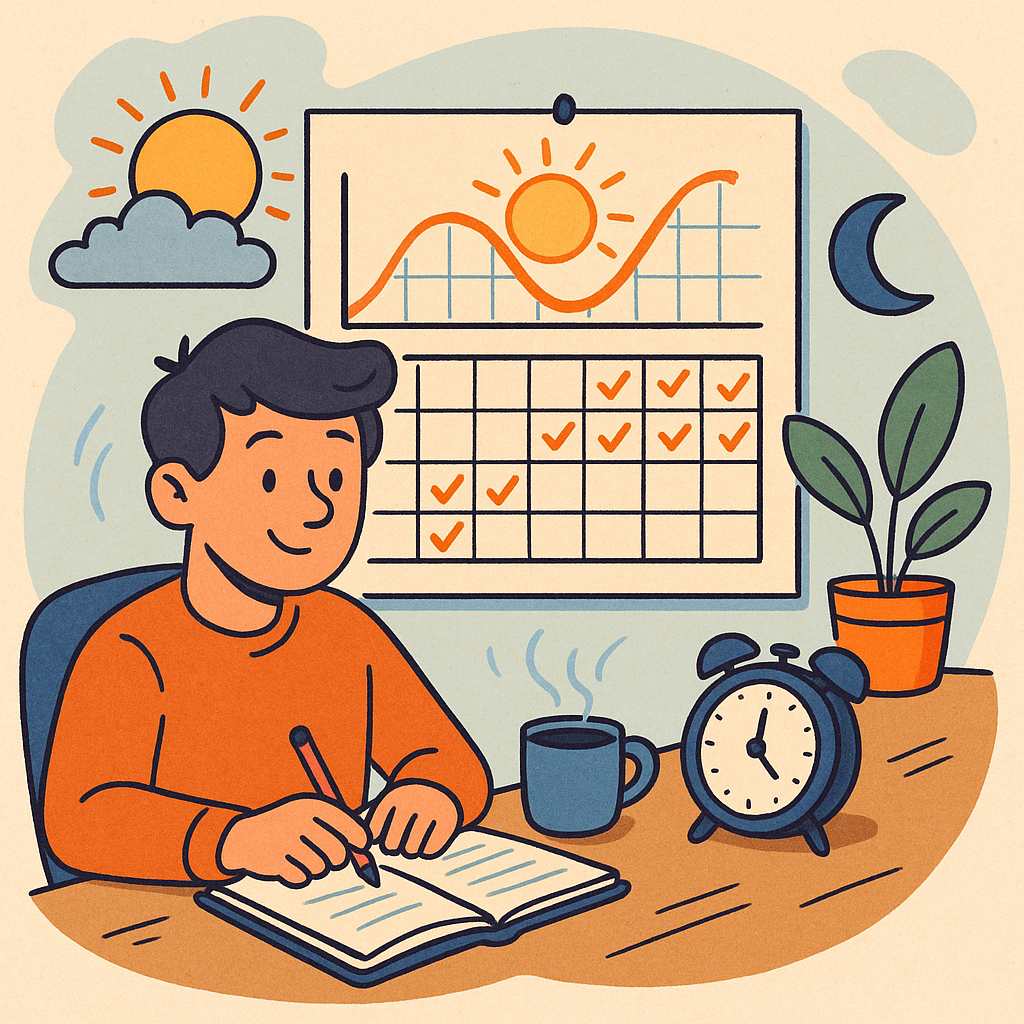Focused people don’t just manage time—they strategically shape it. In an age of constant digital chatter and endless work hours, they use clever disciplines and emerging trends to protect their attention. These habits aren’t prayers—they’re backed by data and deployed by the most successful professionals in the game.

What Focused People Do Differently With Their Time
The key difference? Focused individuals treat time like a resource to invest wisely—one that should generate returns in productivity, wellbeing, and long-term success.
1. They Use Chronoworking to Align With Their Body Clock
Rather than sticking to the traditional 9‑to‑5, these high-performers tailor work around natural energy and productivity peaks. This isn’t new—chronoworking is gaining traction globally. In Australia, experts call it a game-changer for mental health and productivity.
- How to apply it: Keep a log of when you feel sharpest—morning, afternoon, or evening—and schedule deep work sessions accordingly.
- Why it works: Research shows performance dips when working against our circadian rhythms.
2. They Schedule “Focus Time” Like It’s a Business Meeting
Dedicated slots of uninterrupted deep work are now a widely adopted best practice. This method, often referred to as “focus time,” is crucial for tackling high-value tasks .
- What they do: Block 60–90‑minute sessions, turn off notifications and treat them as immovable commitments.
- Evidence: A Georgetown University study found it takes over 23 minutes to refocus after distractions—so avoiding interruptions makes every minute count.
3. They Let AI Do the Heavy Lifting
In 2025, AI-powered scheduling tools sync with their rhythms and adapt on the fly. Platforms like Reclaim AI, Trello AI, and Clockwise automatically carve out focus time, batch tasks, and suggest breaks.
- What’s new: AI learns when you’re most productive, auto-schedules deep work, and keeps distractions at bay.
- Impact: Early adopters report smoother work-flow and less burnout, though AI alone won’t solve every focus issue .
4. They Embrace Micro-Habits for Consistency
Structured tools show results—but real gains come from small, daily habits. Think 2-minute rules (“just start”), gratitude journaling, hydration reminders, and regular breaks .
- Example: Use app blockers, stay offline during deep work, log every tiny achievement.
- Result: These micro-habits reinforce focus and reduce mental strain over time.
5. They Manage Attention, Not Just Time
High-focus individuals understand the modern challenge: continuous partial attention—the urge to multitask and keep up.
- Strategy: Neutralize this by time-blocking, turning off alerts, designating focus zones, and practicing digital detoxes.
- Benefit: This transforms fragmented thinking into deep, purposeful concentration.
6. They Prioritize Emotional Wellbeing Alongside Productivity
They view mental health as a productivity tool, not a sideline. Emotional check-ins, mindful pauses, workload boundaries—they all matter .
- Why it helps: Emotional clarity sharpens decision-making, enhances resilience, and reduces burnout.
- How they build it: Daily mood tracking, scheduled stress relief, and cognitive resets during intense work.
How to Adopt High-Focus Habits in Your Life
Here’s a practical, step-by-step guide to build focus-worthy habits:
- Track Your Energy Patterns
- Log hourly alertness and flow—for two weeks.
- Visualize patterns and designate Peak Periods for deep work.
- Block Focus Time
- Use your Peak Period for 60–90 minute uninterrupted sessions.
- Clearly mark them “Do Not Disturb”.
- Automate With AI
- Try tools like Reclaim AI or Clockwise for smart scheduling.
- Let AI handle meeting logistics and task batching.
- Streamline With Micro-Habits
- Turn off alerts, adopt two-minute rules, keep a “done list”.
- Adopt post-work rituals (walks, mindfulness) to recharge.
- Practice Digital Discipline
- Use blockers like Freedom or Forest during focus windows.
- Reserve email/social scrolls for set times.
- Emotional Check-ins
- Pause twice daily to assess mental load.
- If stressed, swap a focus block for a walk or short meditation.
- Reflect and Iterate
- Weekly review: Which habits improved focus? What hindered it?
- Adjust blocks, routines, and tools based on insights.
The Bigger Picture: Why These Strategies Matter
Focused individuals are cultural innovators—they don’t just work efficiently; they shape healthier, sustainable work ecosystems:
- Beat Burnout: With planned recovery and mindful breaks, burnout risk drops significantly.
- Boost Quality: AI and flow-oriented work promote deep thinking and better results.
- Adapt to Hybrid Work: Chronoworking and AI make remote/flexible environments scalable.
- Champion Mental Health: Emotional wellbeing becomes central, not optional.
This shift isn’t a fad—it represents a foundational change in our relationship with work and time. Focused people today are not just more productive—they’re cultivating resilience, clarity, and purpose in every hour.
Conclusion
Focused people in 2025 don’t just manage time—they engineer it. By tuning into their natural rhythms, embracing AI, and reinforcing small but transformative habits, they stay ahead of distractions. The result? More meaningful work, less stress, and real momentum toward goals.
References
Ceniza‑Levine, C. (2020). Five Ways Productive People Manage Time Differently. Forbes. Retrieved from https://www.forbes.com/sites/carolinecenizalevine/2020/06/21/five-ways-productive-people-manage-time-differently/
Imber, A. (2021). What Super Productive People Do Differently. Harvard Business Review. Retrieved from https://purposeblue.com/what-super-productive-people-do-differently-harvard-business-review/
Macan, T. (2021). Does time management work? A meta-analysis. PMC (NIH). Retrieved from https://pmc.ncbi.nlm.nih.gov/articles/PMC7799745/






